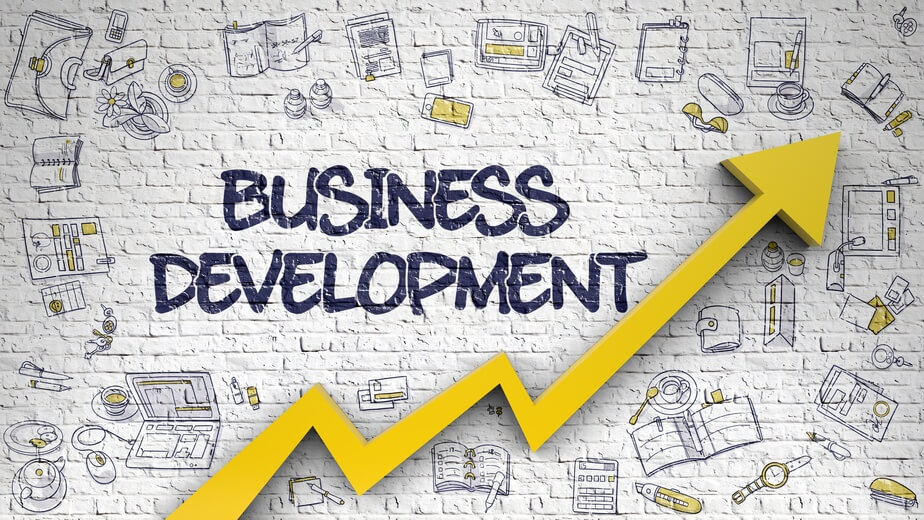In the dynamic world of business, growth doesn’t happen by chance—it’s the result of strategic planning, relationship building, and continual innovation. This is where business development plays a crucial role. As companies seek to expand their market reach, improve their products or services, and increase revenue, a strong focus on business development becomes essential. In this blog, we’ll explore what business development entails, why it’s important, and how companies can effectively leverage it to achieve sustainable growth.
What Is Business Development?
Business development encompasses a broad range of activities aimed at creating long-term value for an organization. It involves identifying new growth opportunities, building strategic partnerships, expanding into new markets, and enhancing the company’s overall competitiveness. Business development professionals work closely with various departments, such as sales, marketing, and product development, to align efforts and drive the company’s growth strategy.
The Importance of Business Development
- Identifying New Opportunities: One of the core functions of business development is identifying and capitalizing on new opportunities. This could involve entering new markets, launching new products or services, or targeting new customer segments. By constantly seeking out these opportunities, businesses can stay ahead of the competition and continue to grow.
- Building Strategic Partnerships: Partnerships and alliances are key components of business development. Whether it’s forming a joint venture, securing a distribution deal, or collaborating on a new project, strategic partnerships can provide access to new resources, expertise, and markets that would be difficult to achieve independently.
- Enhancing Competitive Advantage: In a competitive market, staying ahead requires constant innovation and adaptation. Business development helps companies enhance their competitive advantage by exploring new trends, technologies, and business models that can differentiate them from competitors.
- Driving Revenue Growth: At its core, business development is about driving revenue growth. By identifying and pursuing new business opportunities, companies can increase their sales, expand their customer base, and ultimately improve their bottom line.
- Fostering Innovation: Business development encourages a culture of innovation by constantly seeking new ways to improve and expand the business. This innovative mindset is crucial for adapting to changing market conditions and staying relevant in a fast-paced industry.
Key Strategies for Effective Business Development
- Market Research and Analysis: Understanding the market is the foundation of business development. Conduct thorough research to identify potential opportunities, analyze market trends, and assess the competitive landscape. This information will guide your strategy and help you make informed decisions.
- Relationship Building: Business development is as much about building relationships as it is about identifying opportunities. Cultivate strong relationships with clients, partners, and industry influencers. These connections can open doors to new opportunities and provide valuable insights into the market.
- Strategic Planning: A well-defined business development strategy is essential for success. Set clear goals, identify key targets, and develop a roadmap for achieving them. This plan should be flexible enough to adapt to changing circumstances but focused enough to drive consistent progress.
- Collaboration Across Departments: Business development doesn’t happen in a silo. Collaborate with other departments, such as sales, marketing, and product development, to ensure that your efforts are aligned and that everyone is working toward the same objectives. Cross-functional collaboration can also uncover new opportunities that might not be apparent from a single perspective.
- Leveraging Technology: Technology plays a crucial role in modern business development. Use tools like customer relationship management (CRM) systems, data analytics, and automation to streamline processes, track progress, and gain deeper insights into your business development efforts.
- Continuous Learning and Adaptation: The business landscape is constantly evolving, so it’s important to stay informed about industry trends, emerging technologies, and changes in customer behavior. Continuously assess your business development strategy and be prepared to adapt as needed to stay competitive.
The Role of a Business Development Professional
A business development professional is responsible for driving the company’s growth strategy. This role requires a mix of skills, including strategic thinking, relationship management, negotiation, and market analysis. Business development professionals must be able to identify opportunities, build and maintain relationships, and work collaboratively with other departments to execute growth initiatives. Their work is critical to ensuring that the company remains competitive and continues to grow.
Conclusion
Business development is the engine that drives long-term growth and success for any organization. By identifying new opportunities, building strategic partnerships, and fostering a culture of innovation, companies can position themselves for sustainable success in an ever-changing market. Whether you’re a startup looking to expand or an established company seeking new growth avenues, a strong focus on business development is essential for achieving your goals and staying ahead of the competition.
